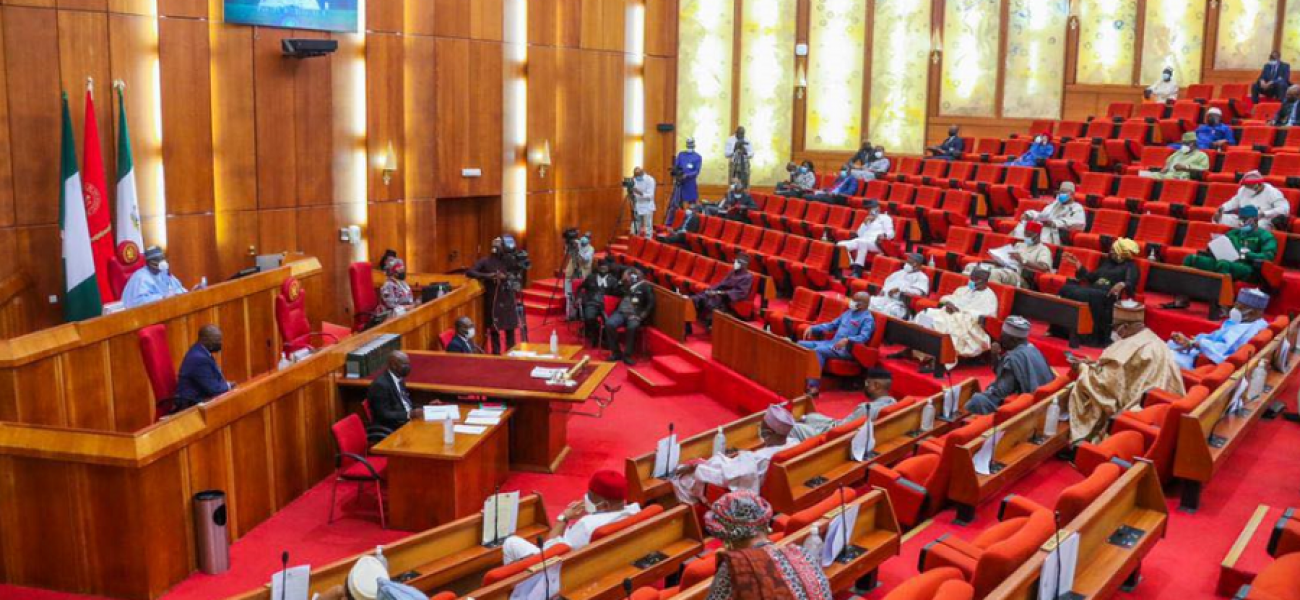On Tuesday, 12th April 2022, the Senate passed the consolidated Nigerian Peace Corps bill (SB 271) and the National Unity Corps bill (SB 375), after receiving the report of its Committee on Interior on the two bills. The Nigerian Peace Corps bill was sponsored by Senator Ali Mohammed Ndume (APC: Borno) while the National Unity Corps bill was sponsored by Senator Gyang Istifanus Dung (PDP: Plateau). Upon referral of the two bills to the Committee in December 2020, a public hearing was organised on the bills in May 2021, following which the Committee consolidated the bills which have similar objectives. The consolidated version is a bill for an Act to establish the Nigerian Peace Corps to facilitate Peace, Volunteerism, Community Services, Neighbourhood Watch and Nation Building; and for related matters, 2022.
The bill establishes the Nigerian Peace Corps with offices in States, Local government Areas, Area Councils and headquarters in the Federal Capital Territory (FCT). Its objectives include enlisting and training youths as supporting agents of social order to provide a second line of public safety, engaging in peace advocacy, educating communities on security and safety measures, carrying out surveillance and collating data on potential security risks within communities for onward transmission to appropriate security agencies. Some of the Corps’ other functions include setting up farm settlements across Senatorial Districts to improve youth involvement in mecahnised farming for improved food production, setting up desks at various entry points into the country to register tourists and visitors who have been cleared by the Immigration Service and other security agencies, and to serve as tour guards and guides for a fee.
The Corps shall have a Governing Board consisting of a Chairman and two members from each of the six geo-political zones of Nigeria. It shall also have a National Commandant appointed by the President, who will have a term of four years and may be reappointed for another term. The Corps will comprise regular members and volunteers, as well as officers and other ranks. The bill stipulates an age range of 18 -35 years for members of the Corps at the time of enlistment. While the Board will be responsible for recruitment of regular members and other staff, the National commandant will be in charge of recruitment of volunteers.
The bill provides for Zonal, State, Local Government and Area Council Commands for the Peace Corps, to co-ordinate its activities at these levels. It shall also have a Squadron Command in each educational institution in the Federation, led by a Squadron Commander, to carry out the Corps’ functions in these institutions. The Corps will also provide libraries at its headquarters in the FCT and State Commands which will contain materials for the advancement of the knowledge and skills of members of the Corps and for research.
The Nigerian Peace Corps will be funded by statutory and budgetary allocations from the National Assembly, funds from local and international donor agencies, gifts from the tiers of government, ministries, agencies and private corporations, as well as loans, grants, aids and bequests.
This bill dissolves the existing Peace Corps of Nigeria and the National Unity and Peace Corps and Savings, and vests the assets, funds, interests, obligations and liabilities of the dissolved bodies in the Nigerian Peace Corps. It will be recalled that the Nigerian Peace Corps bill was passed by the National Assembly in 2017 but failed to receive presidential assent, with President Muhammadu Buhari citing security concerns, lack of funds and duplication of functions of existing agencies as reasons for his decision. The organisation has however, continued to exist without any statutory backing, sometimes running into conflict with the authorities. If this current bill is assented to, then the organisation said to have over 187,000 members will receive the requisite backing to operate. Although the bill that was rejected by the President has been reviewed, with some amendments made to the mandate of the Corps, will these be sufficient to secure presidential assent this time around?

